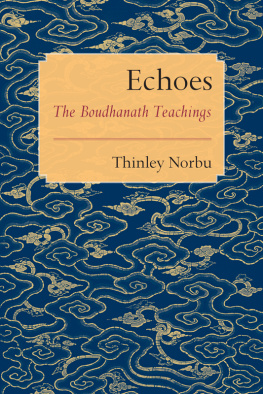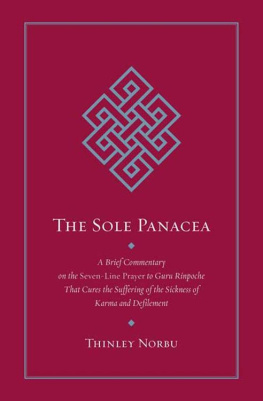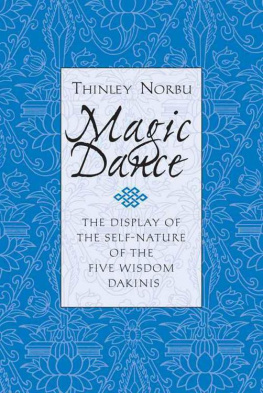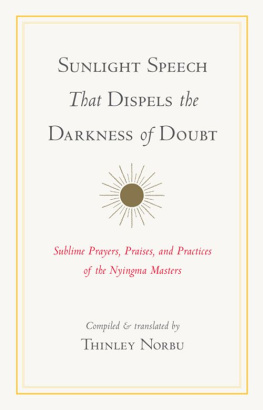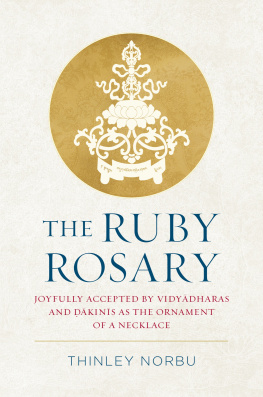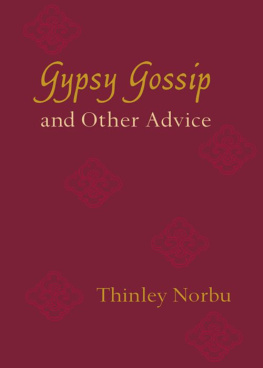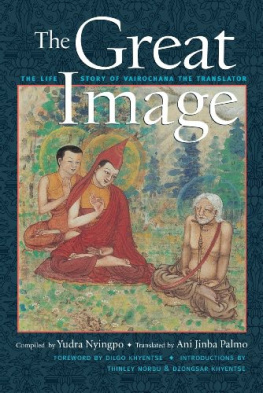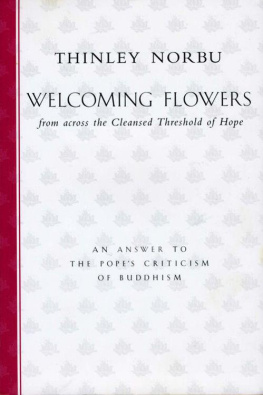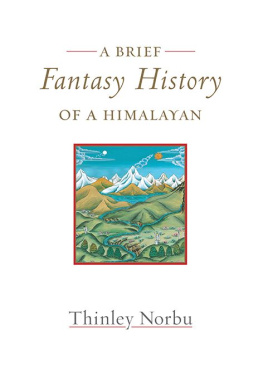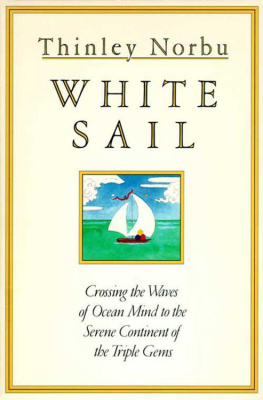ABOUT THE BOOK
In colorful, bustling BoudhanathBuddhisms great pilgrimage site in Nepala group of Westerners gathered to speak with Kyabje Thinley Norbu Rinpoche about topics both mundane and sublime. This is the record of their lively dialogue. First published in an exclusive private edition some forty years ago, Echoes has now returned to reach a larger and broader audience who will be eager to share in this intimate exchange of questions and answers with a revered teacher.
THINLEY NORBU RINPOCHE (19312011) was a preeminent teacher in the Nyingma school of Tibetan Buddhism. The eldest son of His Holiness Ddjom Rinpoche, he was a primary holder of the Ddjom Tersar lineage and considered to be an emanation of Longchenpa, the great fourteenth-century Nyingma master.
Sign up to receive weekly Tibetan Dharma teachings and special offers from Shambhala Publications.

Or visit us online to sign up at shambhala.com/edharmaquotes.
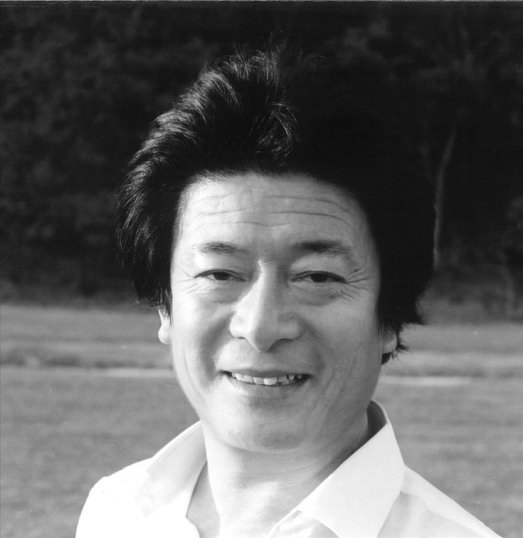
ECHOES
The Boudhanath Teachings
THINLEY NORBU
Translated by William Koblensky

SHAMBHALA
Boulder 2016
Shambhala Publications, Inc.
4720 Walnut Street
Boulder, Colorado 80301
www.shambhala.com
1977, 2016 by the Estate of Kyabje Thinley Norbu Rinpoche
All rights reserved. No part of this book may be reproduced in any form or by any means, electronic or mechanical, including photocopying, recording, or by any information storage and retrieval system, without permission in writing from the publisher.
LIBRARY OF CONGRESS CATALOGING-IN-PUBLICATION DATA
Names: Thinley Norbu, author. | Shakya Dorje, translator.
Title: Echoes: the Boudhanath teachings / Thinley Norbu; translated by William Koblensky.
Description: First Shambhala edition. | Boulder: Shambhala, 2016.
Previously published: Kathmandu: Lhundrub Teng, 1977. | Translated from Tibetan.
Identifiers: LCCN 2015013728 | eISBN 9780834840126 | ISBN 9781611803020 (paperback: alk. paper)
Subjects: LCSH: Thinley NorbuSermons. | Buddhist sermons. | BISAC: RELIGION / Buddhism / Tibetan. | RELIGION / Buddhism / General (see also PHILOSOPHY / Buddhist).
Classification: LCC BQ7612 .T48 2016 | DDC 294.3/420423dc23
LC record available at http://lccn.loc.gov/2015013728
The first edition of Echoes (Kathmandu: Lhundrub Teng, 1977) was published privately in a printing of one hundred copies with ivory-colored cloth covers. The book is based on a teaching given in Tibetan by Kyabje Thinley Norbu Rinpoche to a small group of Westerners in 1977 in Boudhanath, Nepal, with some Bhutanese and Tibetans present. This teaching had been requested by Colonel Penjo Ongdi and Aum Choden of Bhutan, who were students of Rinpoches father, Kyabje Dudjom Rinpoche. The interpreter was William Koblensky (also known as Shakya Dorje), whose translation was transcribed from recordings of the teaching, and these transcripts were later edited to create the book. The present edition has received additional, conservative editing to update vocabulary and harmonize some details of the translation with Rinpoches style in English.
I am very happy to be here today. Ive recently returned from the West, where I met a lot of different people and in general received a very positive impression. There was no special reason for me to feel that way, but perhaps as a result of habits from previous lives, I liked the West and Westerners.
I have spent the greater part of my life in the East and so have always been involved in Eastern social customs, which are very rigid and restrictive. I have also been involved in the tradition of Dharma, which is also in its own way quite rigorous. Some of the people I met in the West were involved in Dharma and some were not. I found that a lot of the people not involved in Dharma are simple people with very good minds. I also found that some Westerners practicing Dharma are actually being harmed by ittheir minds are deteriorating. A lot of people I met who are not involved in Dharma are very direct and straightforward, without many thoughts, doubts, or worries. Many people involved in Dharma, on the other hand, have a lot of doubts and worries and are not exactly straightforward. This made me think that perhaps in some ways its better not to practice Dharma. Buddha Shakyamuni said that the source of all Dharma is directness, and in my experience people who know nothing of Dharma often tend to be very direct. Having learned a great deal about Dharma, people tend to become involved in the artificiality of mental fiction and so become much less direct. The teachings of Dharma have in fact taken them away from Dharma.
In the tantras and in Dzogchen it is said that one must leave awareness alone, naked, without doing anything to it, and without creating anything artificial whatsoever. A great many people who have heard a lot about Dharma can never do this; they are always creating a lot of artificial conceptions. But people who have heard nothing of Dharma do not tend to create artificial conceptions, and I think it would be easy for them to leave their awareness alone and as it is, because they have not created anything to obscure it.
I do not consider myself a Lama and so I am not [currently] wearing robes. I do not feel that I should adopt the role of a master. My father, Dudjom Rinpoche, is a very great yogi with supremely accomplished qualities and has no pride about them whatsoever, but merely being the son of a great yogi doesnt make one special. Buddha Shakyamuni himself was the greatest of teachers, and Devadatta was certainly his cousin, yet it did not benefit Devadatta to be the cousin of Buddha Shakyamuni; he was simply a demon. Merely having a great father doesnt make me anything special. Im approaching these talks as your friend. I enjoy talking with friends about Dharma, and this way may even be useful. A friends qualities are not particularly relevant or important. In his previous lives, Buddha Shakyamuni even took teachings from hunters.
While I was in the West I noticed that Dharma is being spread there quite a lot. Many people are practicing Zen, and many others are involved in the four sects of Tibetan Buddhismthe Sakya, Gelug, Kagyu, and Nyingma. I am worried that Westerners will experience many obstacles in their Dharma practice. Although its good that Dharma spreads, if Westerners are not capable of practicing it very well, Dharma will primarily become an obstacle for them. So if we persevere in our practice, we will further the spread of Dharma.
Teaching Dharma is not easy. We must recognize that there are many different kinds of people, and different people have different faculties. This leads to different approaches to Dharma and to inclinations toward different types of practice. There are Hinayana types, to whom one should teach the Hinayana; Mahayana types, to whom one should teach the Mahayana; and Vajrayana types, to whom one should teach the Vajrayana. There are people who are capable of having a good relationship with primordial wisdom, to whom one should teach wisdom; there are people who have philosophical inclinations, to whom one should teach philosophy; and so on. I am not capable of seeing what kind of people you are and what kind of faculties you have, so I would like to ask what particular interests and aspirations you have in Dharma.
How can Dharma be practiced without such exterior signs as wearing robes and doing prostrations? You seem to have implied that these things are not necessary.
Next page
